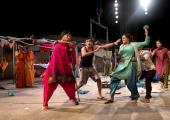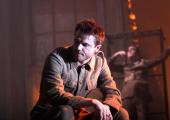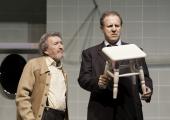Behind the Beautiful Forevers, National Theatre

Rufus Norris staging works both on its own terms and as a bold sign of what's to come
Behind the Beautiful Forevers, David Hare's adaptation of Katherine Boo's Pulitzer Prize-winning book, works as both play and portent. Viewed on its own terms, the evening grips throughout in its embrace of the multiple contradictions of contemporary Indian life as here filtered through those existing quite literally off the scrap of that country's gathering economic power.









